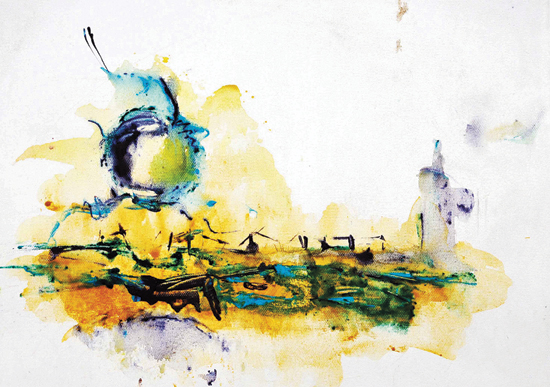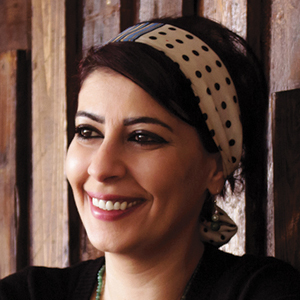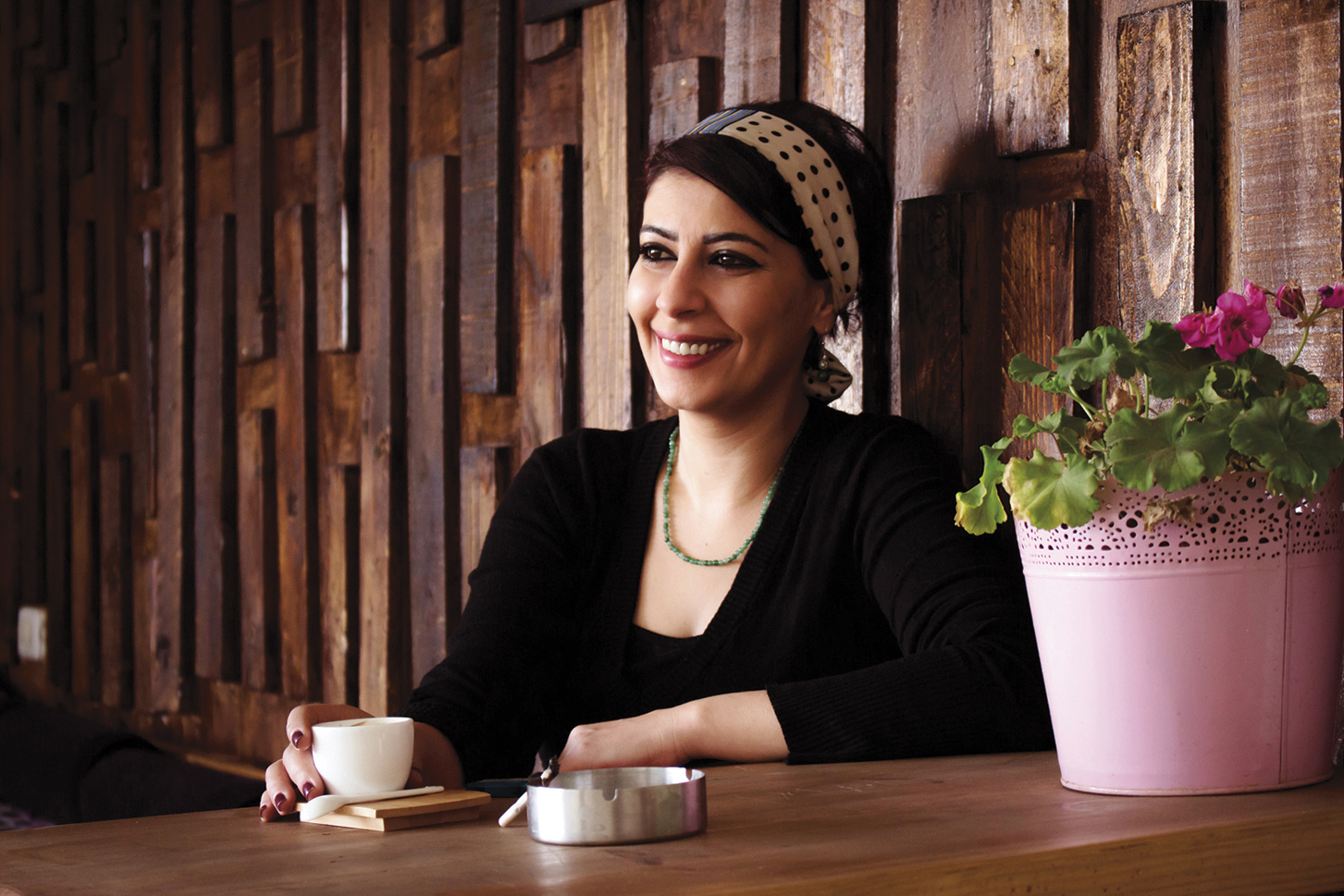Jumana Mustafa is a Palestinian-Jordanian poet and media person who works in print and television journalism. She fights for human rights, freedom of expression, and a democratic Jordan. In 2008, she founded the Poetry in Theatre Festival that is held each spring to celebrate poets and their classical theater work. In 2011, she established, along with a group of regional and Jordanian artists, a new festival titled Khan Arts, which presents poetry, music, and visual arts. Her list of poetry collections includes Ten Women (2007), Wild Beatitude (2009), I Won’t Tell You What I Saw (2012), and I Am Used to No One Seeing Me (2015).
In a review titled Bitterness in the Poetry of Jumana Mustafa, Salah Abu Sarif comments that Jumana’s recent work opens new horizons for adventure and experimentation. He asserts that “poets have no obligation to only please readers. The conventional can be presented in unfamiliar ways, using unconventional linguistic expressions, and this is what Jumana does. The frugality of words and symbols she uses allows for a wide range of interpretations of her poems. Readers cannot search for meaning in Jumana’s poetry, because existence for her has become absurd and meaningless. She says, ‘The statue stands still, tired and immovable, blaming the delayed arrival of the earthquake.’” … “Freedom is not restricted to the Palestinian people; for Jumana, it is a universal value of moral significance.”
Translated from Arabic by Sammy Kirreh.
Capitals
I don’t curse capitals
its frenzies
its smoke
and the armies of the possessed
I don’t kick its beguiled cement
I don’t cry over the fields
and over illiterate grandmothers
who delivered us
cruel and greedy
Your phantom beauty
goes out at night
cruelty while it’s dwelling the streets
like a crooked dog
our neighbor’s scream at dawn
and her children’s morning paleness
your maniacs
your whores
your orphans
as they fall from you
The crimes
that you trim your nails with
garbage trucks
as they gather our existence
and throw it away
and the most beautiful in you
is the great cemetery
that you’ve been dwelling in
for forty years

Glass of Wine
This house needs a dog
and a wolf that distresses the life of the dog
and a sheep that gives their life meaning
and a shepherd that thinks of himself above all
This house needs a chicken
and a rooster to love it
and ten chicks
hiding behind the couch
This house needs a tree
It better be a carob
and a white owl to land on it
the owl hoots
the carob thinks the hooting is a poem and cries
we do not need a butterfly
we do not need a flute
nor a water spring
but one more glass of wine
to survive one more hour
Happy End
I erase the ant’s moral
I danced all summer
I didn’t work
Winter didn’t come
hunger didn’t bite me
I erase the queen bee’s wisdom
I flew high
and males flew behind me
Wasps didn’t reach me
My honey is still mine
I leave the crow its black feathers
his jealousy won’t let him down
and the seven sheep of the ghoul
won’t get slaughtered by the village savior
and the sultan’s daughter has her charm
her futility won’t be exposed
and I stop my tale in its middle
I freeze the swing
mid air
I leave my ending waiting
near the moral that says
“she kept playing until regret”
I kept playing
and laughed a lot
The Civilization
Civilization
didn’t trade its honor for a cigarette
it sold all of its children
Civilization moved
Left the Ottoman slaves behind
with their hunched cringing
with their crude kindness
with their blessings and spells
electricity didn’t dismiss their demons
nor medicine fuddle their shamans
their embarrassing present
the dark curtains
while it protects
the old honor of families
from modernity
young girls
hide love
in the phone’s vibrations
instead of pillows
Television
as it lays suspense
on misery
Newspapers
as it surprises illiteracy
and horoscopes
When it weakens demons of their job
but they are
as they are
the hunched cringe
the whip’s praise
the poor’s prayers to the rich
and the upturned cups on its fear
the civilization that was born here
sold us and left
our mother that we no longer look like
and loves us no more
War
War, on its beautiful posture
on its stand
slant as it’s supposed to be
still as it’s supposed to be
does not move
does not scratch her nose
does not wipe the red sweat drop
off its forehead
How do you see it from above
O great painter?
How does your beautiful mistress look from your height?
War, on its beautiful posture
leans on a hand
and with the other covers her knee
naked, never been but naked
War in its beginning
the scene is not complete
chronicled from every angle
Black is her shade, white barley breathes
war…
Drawn only by coal.
Poems from the collection I Am Used to No One Seeing Me.
Translated from Arabic by Yazan Alashqar.



